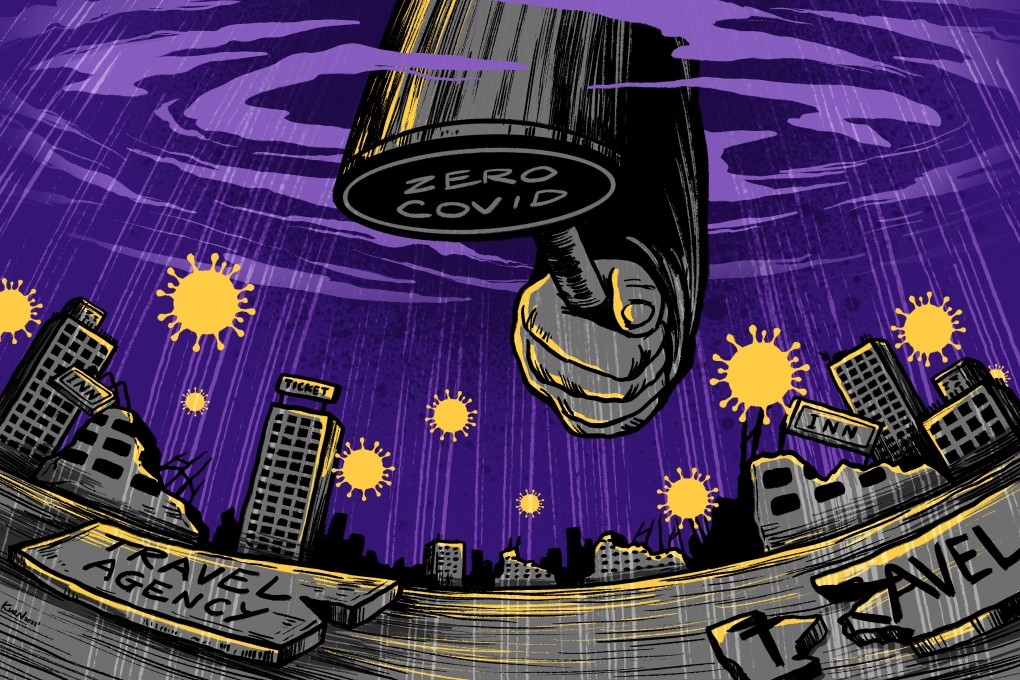Coronavirus: China’s travel sector, already on its knees, feels the pinch of a fresh outbreak
- China’s latest coronavirus outbreak and accompanying travel restrictions have dashed hopes of recovery in the tourism sector
- Trips taken by domestic tourists in the first quarter fell by 18.9 per cent from a year earlier to 830 million, according to think tank Fastdata

After two years of on-and-off business due to travel restrictions and snap lockdowns, China’s travel sector was banking on 2022 being the year that everything turned around.
Instead, the country is battling its worst coronavirus outbreak in two years, which has wiped out major holiday travel and come close to extinguishing the last glimmer of hope held by many small companies.
“Tourism is dead,” said Yun Qishi, whose travel agency had no clients during the recent Labour Day holiday, a five-day break at the start of May that is traditionally one of the busiest times of the year.
Business has been tough since before the Lunar New Year holiday in February, said the chief operating officer of the Shenzhen-based company.
China’s tourism sector will soon go bankrupt
“China’s tourism sector will soon go bankrupt,” Yun said. “I would have nothing to say if it were because of individual companies’ bad management, but the situation is that we are not getting any opportunity to operate.”